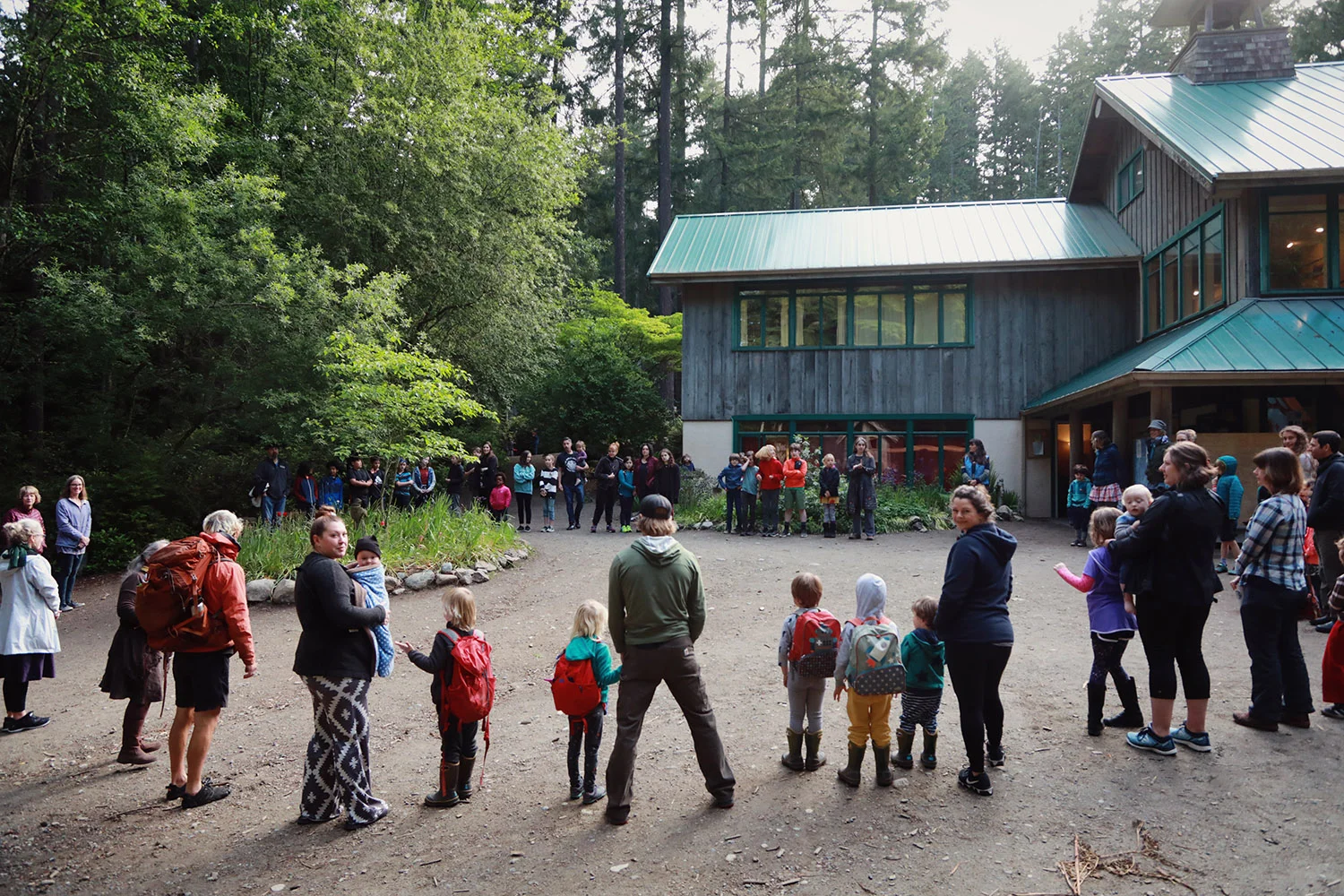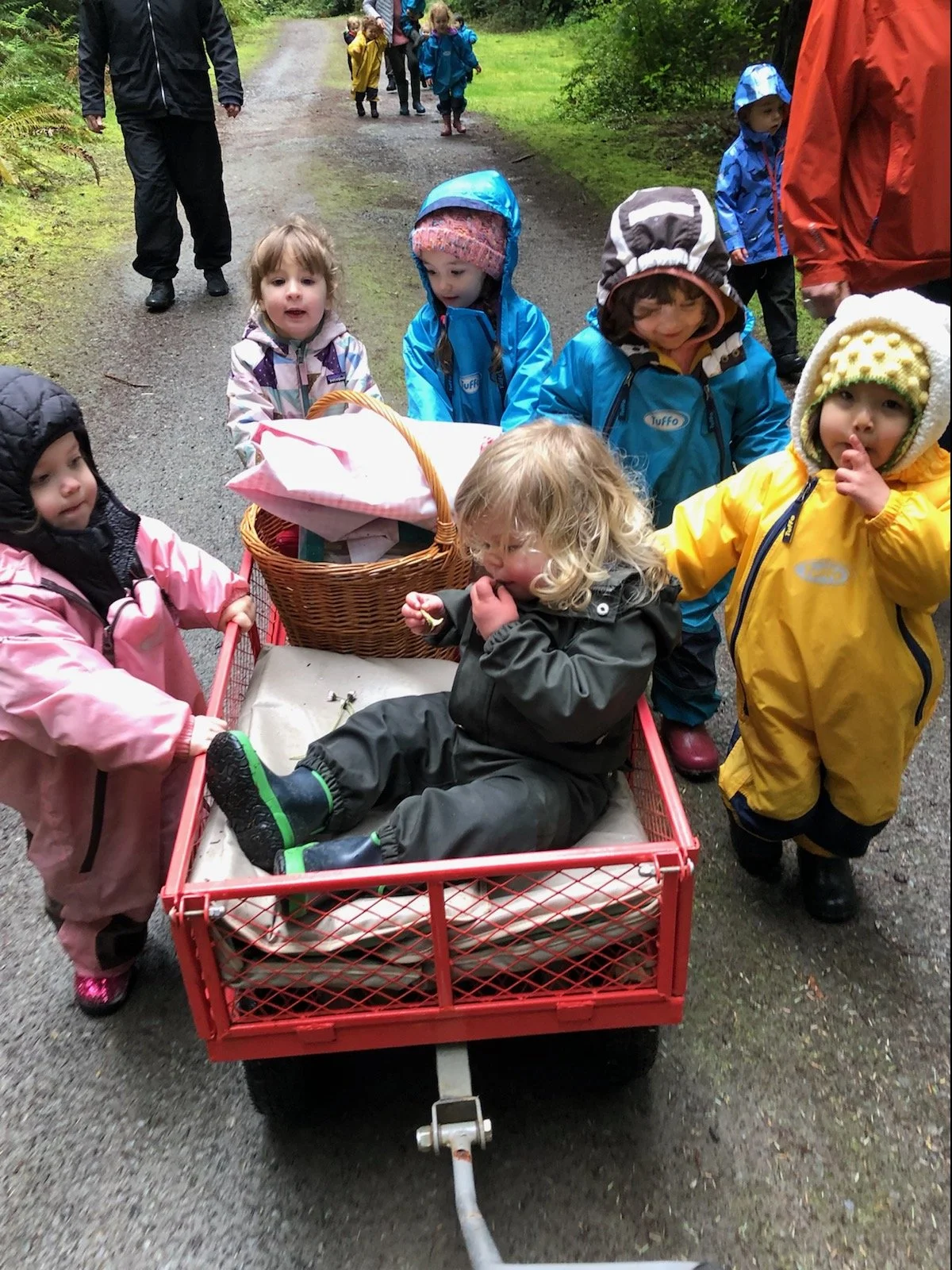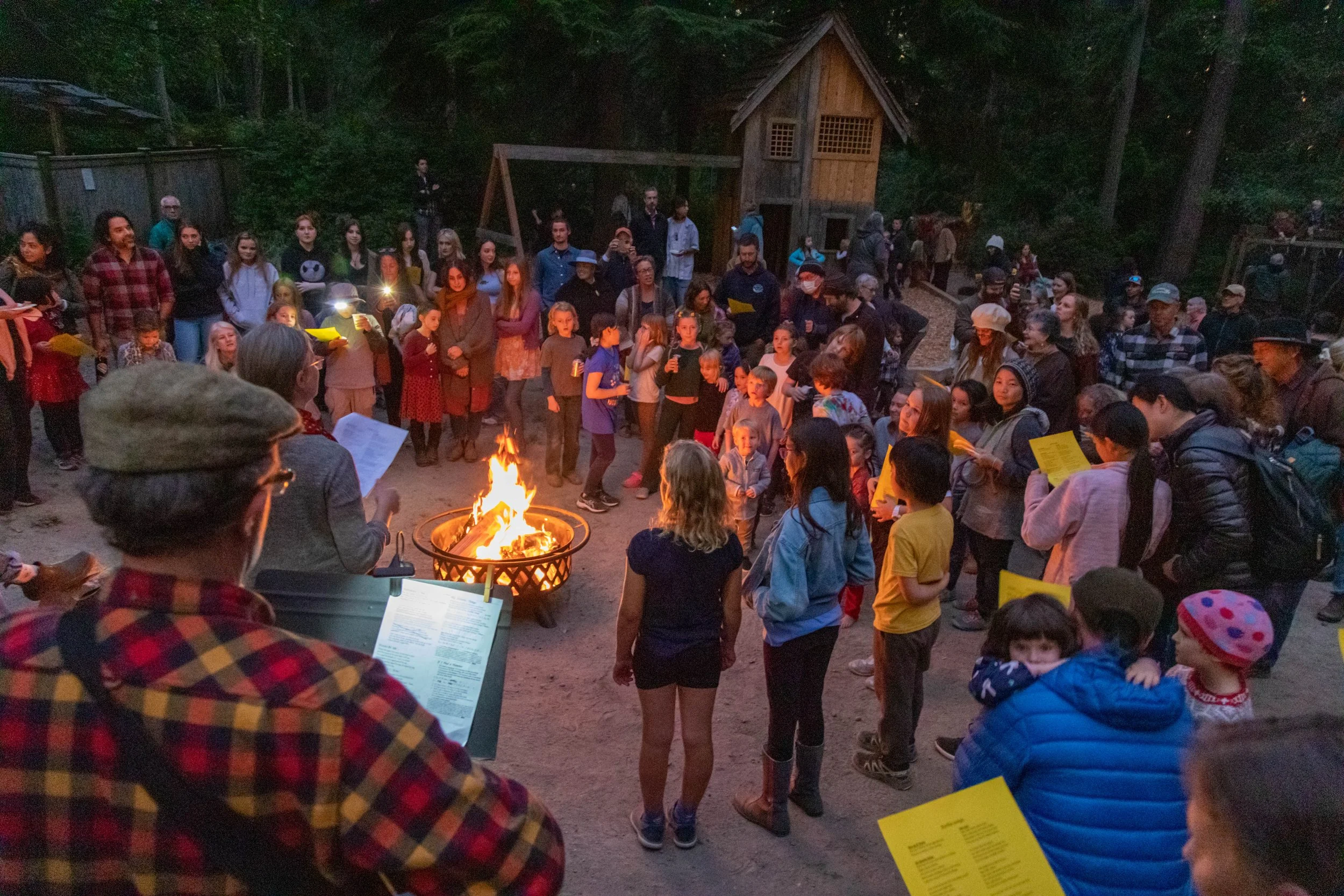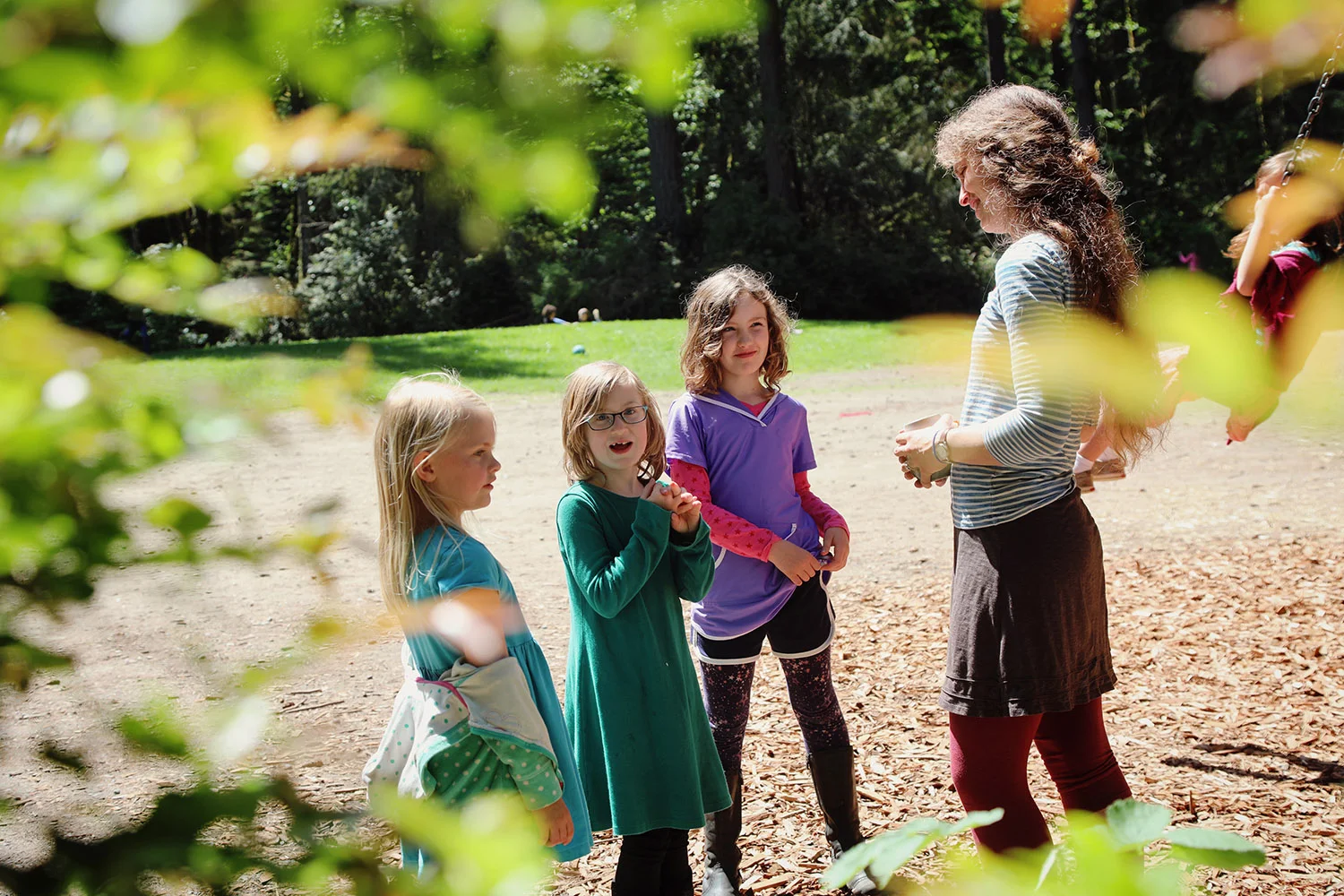To learn more about Whidbey Island Waldorf School or come for a tour or a walk through the Grades, please reach out through the button below.
WIWS Community/
Diversity, equity, inclusion
“It warms my heart to know Cecilia attends a school where land history is acknowledged and people are given a chance to define their own identities.”
Claudia Gonzalez-Kiyama, current WIWS parent
Parent & Community Engagement
How do we stay connected to one another in the midst of an overwhelming amount of information, communication and noise? How do we engage in community life when we feel a desperate need for our own inner quiet? Your Whidbey Island Waldorf School, along with hundreds of other Waldorf schools around the world, is here to provide sanctuary. This school is a place where the children can learn and grow through story, song, laughter, and activity, unencumbered by the pressures of the world. We also hope that this school can be for you, the adults, a refuge, a place where you feel safe in relationship with others who share your values. We understand that the national and international news is harsh and unsettling. May we be for each other the comfort and peace we need during these troubled and challenging times.
Amidst all this, it is true that we absolutely cannot run this school without you. Your gifts of your time and talent are essential to the thriving of Whidbey Island Waldorf School. Your active support and involvement for work projects, school governance, special events, seasonal festivals, student productions and much more become the many oars rowing the good ship WIWS. Please contact our office to see how you can help. Every little bit helps, together we make the village.
Diversity, Equity & Inclusion
WIWS recognizes an ongoing need for cultivating awareness, sensitivity, and responsiveness towards issues of Diversity, Equity and Inclusion in the school community and the world at large. To that end, a committee of dedicated and passionate parents, teachers and administrators was formed in 2018: the Diversity, Equity and Inclusion Committee (DEIC). This committee met throughout the year to facilitate brave spaces for our community to have the opportunity to acknowledge and address behavior that is hurtful, inequitable or exclusive with the hope that we can create a community where curiosity and transparency are encouraged, restorative justice is commonplace, and a sense of belonging is the privilege of all.
We are in the process now of re-enlivening our DEI Committee as we continue to move forward and more deeply into issues of diversity, equity and inclusion in all realms of WIWS.
Goals of the DEI include developing Equity Principles, organizing training opportunities for faculty, staff and community, researching and networking with other Waldorf schools and outside organizations doing this work, and compiling readings and other materials. Ongoing work includes a renewal of our student and faculty library and review-to-changes of class language arts and history curriculum, among others. Membership includes Faculty, Staff and Parent representatives.
“There is always light, if only we are brave enough to see it. If only we are brave enough to be it."
- Amanda Gorman
Social Inclusion
Social Inclusion is a multi-faceted approach to preventing and relieving social isolation. It involves the whole community – a “village spirit” of teachers, parents, and students that tends to the social health of our school and its members. It aims to foster a felt sense of inclusion, vital to our children’s development – indeed vital to the soul and spirit of our community.
Whidbey Island Waldorf School is committed to healthy and successful students and healthy social relationships among students, teachers and all members of the school community. This value is reflected throughout the curriculum and implicit in the working of the school.
Our school has adopted a student support process based on the social inclusion work brought to us by Kim John Payne, who is respected worldwide for his work in helping children navigate challenge as well as conflict through a no blame approach.
From our Early Childhood Parent Handbook:
Restorative Discipline:
The Waldorf early childhood teachers at WIWS strive to develop healthy classroom habits that create environments of patience, joy, and warmth. We use "restorative discipline," an approach taught by Kim John Payne and further incorporated over the years at the school. In this approach, teachers view all errant behavior as a manifestation of disorientation or immaturity (rather than disobedience or difficulty). Acting with a confident and calm adult presence, the teachers work to reorient and support the child or group of children. Teachers use implicit guidance strategies (such as teaching through imitation and providing clear and predictable daily schedules, boundaries, and environments) and explicit strategies (such as speaking for the children in more prosocial ways).
The approach honors conflict as an opportunity for children to develop social skills. If children cannot resolve a conflict on their own, the teacher will come closer to the children with an open, nonjudgmental gesture. Intervention can be found anywhere along a large continuum that may include redirection, closer proximity to the teacher, and waiting until the other child feels better before resuming play, a reminder of prosocial behavior, an imagination ("your puppy can be brushed softly"), or a firm voice saying "no thank you!" with a teacher's hands blocking harm.
The teachers strive to speak to the children and each other without using such labels as "bully" or "victim." We tend to avoid behavior modification through rewards or punishments because they take children out of the present moment and cause them to focus either on the past or future or tune out the teacher entirely! Instead, teachers help the children work together. The children may be given the opportunity to have a "do over," saying, “Let's try that again." This is often the most effective discipline statement in early childhood.
Children often express themselves physically as well as verbally. Rough and tumble play ("puppy play") can be an important part of a child's development, but the teacher must step in when physical play becomes aggressive and children's "no's" aren't heeded. Pushing and hitting ARE part of the language of childhood AND these behaviors must be reoriented by the teacher to help children learn to replace physical expression with prosocial, verbal communication. Teachers also help children notice and respond appropriately to the verbal expressions of their playmates, such as by telling them that "No means no. You must stop. I won't let this continue."
If there is a pattern of aggressive or atypical behavior, the teachers must deal with the immediate situation, while at the same time lovingly accepting the child and finding the cause of the disorientation. In these situations, the teacher or assistant may stay close to the child so that hitting or pushing can quickly be prevented. Children may also be invited into practical or physical work before a problem emerges.
Sometimes, children are unable to work toward restoration (perhaps because they are sick or emotionally exhausted). In this case, they will benefit by going home. After the space and breath of being away from the classroom, children can rejoin with a renewed ability to connect and harmonize with their classmates and teachers. This time away also offers space for other measures to be considered, such as professional, therapeutic, or medical support.
Rhythm is at the foundation. Rhythm develops a breathing quality to the flow of the day, so that the children can anticipate and relax within child-centered activities. It provides a framework for the day, which is orienting and assuring. Rhythm is the foundation for our movement through each morning and significantly reduces the need for disciplinary intervention with children.
From our Grades Parent Handbook:
Discipline in the grades classes is developed through healthy social habits. The child learns through authority and the teacher strives to be a model worthy of respect. Fostering a quality of inner discipline over many years builds an ethical foundation for adult life.
Students are expected to honor the physical and emotional well-being of themselves, each other, the teachers and staff of the Whidbey Island Waldorf School, and to refrain from disturbing others or violating their space (fighting, harassment, etc.).
As in the Early Childhood, at WIWS we also use "restorative discipline," in the Grades - an approach taught by Kim John Payne and further incorporated over the years at the school. In this approach, teachers view all errant behavior as a manifestation of disorientation or immaturity (rather than disobedience or difficulty). Acting with a confident and calm adult presence, the teachers work to reorient and support the student or group of students. Teachers use implicit guidance strategies (such as teaching through imitation and providing clear and predictable daily schedules, boundaries, and environments) and explicit strategies (such as speaking for the children in more prosocial ways).
Teachers work quickly with students and when needed with family as well to help calm and guide a disoriented student or group of students. We bring all concerned to the table, and are committed to conflict resolution through restorative discipline.
Little Woods toddler program
““The healthy social life is found When, in the mirror of each human soul, The entire community finds its reflection, And when, in the community, The virtue of each one is living.””
Festivals
Just wanted to drop you a line and let you know that as a parent of a child in Cedar Grove Kindergarten, and a Waldorf lifer myself (preK-12th grade, Cincinnati & Sacramento, with a preschool Waldorf teacher mom) that I absolutely love the way WIWS has re-envisioned Michaelmas to center an Indigenous story and one that promotes messages of cooperation, not domination. This is exactly the kind of evolution I have been hoping to see in Waldorf education. Many thanks!
Hannah Elnan-Derse, Current WIWS Parent
We celebrate seasonal festivals to connect to the natural rhythms that sustain us. The work of preparation is as, or more, nourishing than the festival itself. Children learn by doing. Children find joy in witnessing their parents work with love and laughter at their school. Celebrating together lays the groundwork for cultural and social diversity. The rhythmic experiences help parents as they seek to find their own balance with their children in home life. Life-long friendships are made through festival work.
Great care is taken in planning and providing an entry into school life that fosters wonder, joy and possibility, the early foundations for a life-long love of learning. The Waldorf Pre-school and Kindergarten experience is meant to enliven the imagination and lovingly guide each child toward an understanding of the world, to plant the seeds for a successful school career and adult life.
Listening Council
The Listening Council is dedicated to maintaining an opening for WIWS community members to speak their minds, voice an idea, air a concern, express gratitude, or share a thought with members of the school leadership. The mission of the Listening Council is to facilitate clear and effective communication, with timely resolution to conflicts when applicable, in order to support the healthy social life of our school community.
Members typically include a member of the WIWS Leadership Team, a WIWS Administration member, a WIWS Parent member and a WIWS Board member. Membership could also include a consultant from the community who is not currently involved in the school.
Current WIWS parents seeking more information about the Listening Council, please see the Parent Portal.
““I packed up the marimbas today and will be back on Friday for the concert.
I have to say I was sad to be packing up. I have enjoyed these five weeks with the kids so much. They were a joy to teach.
What a fantastic school and fabulous kids! The sense of community that is fostered in the school and in each class was a beautiful experience.
The students are so very kind, respectful, supportive to each other, and excited to learn.
Well done Whidbey Island Waldorf School teachers and staff!”
Thank you for having me.
Dana”









